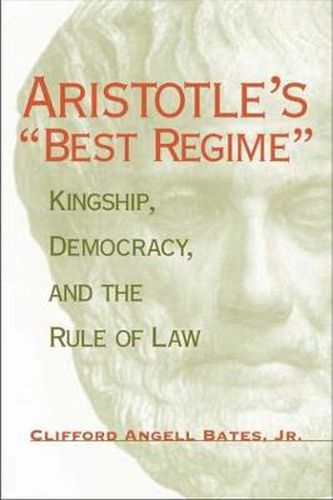Readings Newsletter
Become a Readings Member to make your shopping experience even easier.
Sign in or sign up for free!
You’re not far away from qualifying for FREE standard shipping within Australia
You’ve qualified for FREE standard shipping within Australia
The cart is loading…






The collapse of the Soviet Union and other Marxist regimes around the world seems to have left liberal democracy as the only surviving ideology, and yet many scholars of political thought still find liberal democracy objectionable. This analysis of Book 3 of Aristotle’s Politics challenges these scholars, demonstrating that Aristotle was actually a defender of democracy. Proving the relevance of classical political philosophy to modern democratic problems, this work argues that Aristotle not only defends popular rule but suggests that democracy, restrained by the rule of law, is the best form of government. It explains why Aristotle’s is a sound position between two extremes - participatory democracy, which romanticizes the people, and elite theory, which underrates them. Its interpretation rests on approaches to reading Book 3 - which it deems vital to understanding all of Aristotle’s Politics . Examining the work in the original Greek as well as in translation, it addresses the questions of the historical Aristotle versus the posited Aristotle, the genre and structure of the text, and both the theoretical and dialogic nature of the work.
$9.00 standard shipping within Australia
FREE standard shipping within Australia for orders over $100.00
Express & International shipping calculated at checkout
The collapse of the Soviet Union and other Marxist regimes around the world seems to have left liberal democracy as the only surviving ideology, and yet many scholars of political thought still find liberal democracy objectionable. This analysis of Book 3 of Aristotle’s Politics challenges these scholars, demonstrating that Aristotle was actually a defender of democracy. Proving the relevance of classical political philosophy to modern democratic problems, this work argues that Aristotle not only defends popular rule but suggests that democracy, restrained by the rule of law, is the best form of government. It explains why Aristotle’s is a sound position between two extremes - participatory democracy, which romanticizes the people, and elite theory, which underrates them. Its interpretation rests on approaches to reading Book 3 - which it deems vital to understanding all of Aristotle’s Politics . Examining the work in the original Greek as well as in translation, it addresses the questions of the historical Aristotle versus the posited Aristotle, the genre and structure of the text, and both the theoretical and dialogic nature of the work.